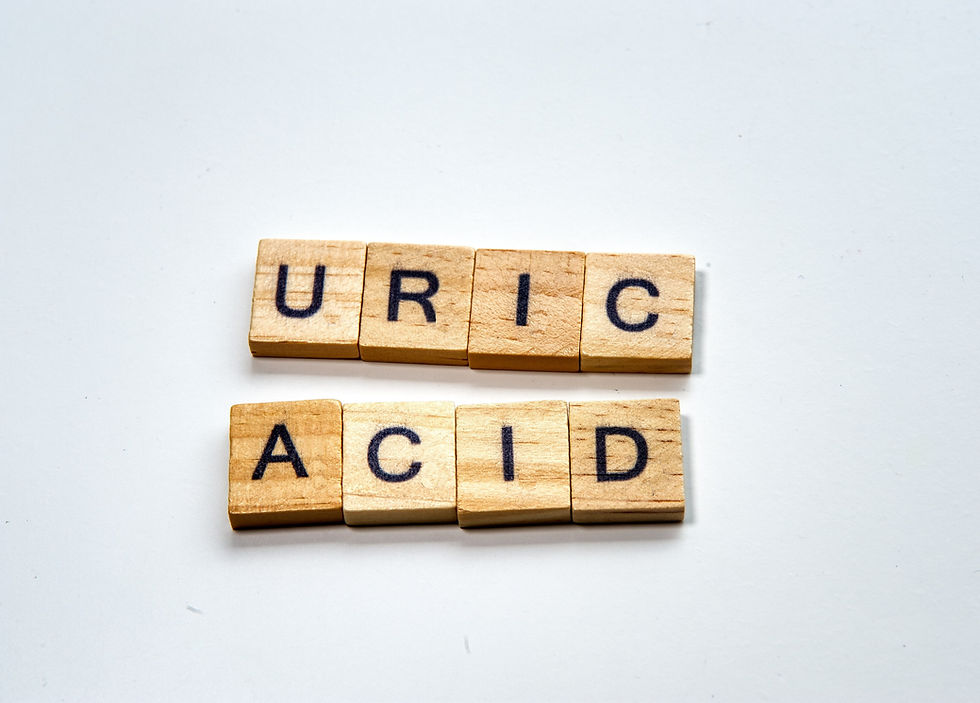Unlocking the Secrets of Gut Health: The Essential Guide to Probiotics, Prebiotics, and Postbiotics
- Joon

- Jan 30, 2024
- 3 min read
"Discover the Synergy of Gut Microbiome's Power Trio: Nourishing Your Body from the Inside Out"
Gut health is an essential aspect of our overall well-being, impacting everything from our digestion to our immune system, and even our mental health. In recent years, the scientific community has paid increasing attention to the gut microbiome - the vast ecosystem of microorganisms living in our digestive tract. Among the key players in maintaining a healthy gut microbiome are probiotics, prebiotics, and postbiotics. This blog aims to demystify these terms and explore their critical roles in our health.
Understanding the Gut Microbiome
Our gut is home to trillions of microorganisms, including bacteria, viruses, fungi, and other life forms. This community of microorganisms is known as the gut microbiome. A healthy gut microbiome is crucial for digesting food, synthesizing nutrients, and defending against pathogens. It's a delicate ecosystem, and its balance is vital for our overall health. Disruptions in this balance can lead to a range of health issues, from digestive disorders to chronic diseases and even mental health conditions.
What are Probiotics?
Probiotics are live microorganisms that, when administered in adequate amounts, confer a health benefit on the host. They are often referred to as "good" or "beneficial" bacteria. Probiotics help maintain the natural balance of organisms (microflora) in the intestines, essential for a healthy digestive system. They are found in fermented foods like yogurt, kefir, sauerkraut, tempeh, and some cheeses, as well as in dietary supplements. Probiotics can enhance the immune system, improve digestion and absorption of nutrients, and even potentially reduce the risk of certain infections and chronic diseases.
The Role of Prebiotics
Prebiotics are non-digestible food components that promote the growth of beneficial microorganisms in the intestines. They are essentially food for probiotics. Prebiotics are found in high-fiber foods such as fruits, vegetables, and whole grains, including bananas, onions, garlic, asparagus, and oats. They pass through the stomach and small intestine undigested, and when they reach the colon, they are fermented by the gut microflora. This fermentation process produces short-chain fatty acids, which have various health benefits, including improving digestive health, enhancing calcium absorption, and potentially reducing the risk of certain diseases.
The Emergence of Postbiotics
Postbiotics are a relatively new area of study in the field of gut health. They are the byproducts or metabolites resulting from the fermentation of prebiotics by probiotics in the gut. These include substances like short-chain fatty acids, functional proteins, peptides, and other microbial metabolites. Postbiotics can have various health-promoting effects, including anti-inflammatory, antioxidant, and immune-modulatory activities. They are thought to play a role in gut barrier integrity and modulate the gut microbiome's composition.
The Synergistic Relationship
The relationship between probiotics, prebiotics, and postbiotics is synergistic. Probiotics consume prebiotics to produce postbiotics. This process is essential for maintaining a healthy gut environment. A diet rich in prebiotics can enhance the effectiveness of probiotics, which in turn produce beneficial postbiotics. Together, they contribute to a well-balanced gut microbiome, which is crucial for overall health.
Incorporating Probiotics, Prebiotics, and Postbiotics into Your Diet
To harness the benefits of probiotics, prebiotics, and postbiotics, it's important to include a variety of these components in your diet. Consuming fermented foods and beverages is an excellent way to introduce probiotics into your system. To ensure a steady supply of prebiotics, include plenty of high-fiber foods in your meals. While postbiotics are not typically consumed directly, a diet rich in probiotics and prebiotics will naturally lead to their production in the gut.
Conclusion
The exploration of probiotics, prebiotics, and postbiotics is a fascinating journey into the world of gut health. Understanding and harnessing their benefits can lead to improved digestion, enhanced immune function, and an overall boost in health and well-being. As research continues to unfold, we'll undoubtedly discover even more about how these microscopic powerhouses can positively impact our lives.


![[SHARED] Scientific Frontiers - Heat killed BBR4401 cholesterol study - Ildong Bioscience Co](https://static.wixstatic.com/media/8eb5c0_d1c445ac5d654b26b5de257ccf3bbca3~mv2.jpg/v1/fill/w_724,h_407,al_c,q_80,enc_avif,quality_auto/8eb5c0_d1c445ac5d654b26b5de257ccf3bbca3~mv2.jpg)